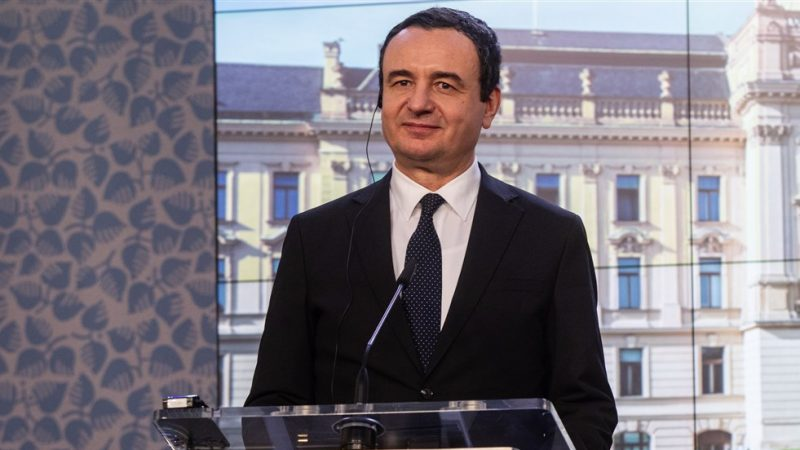
Kosovo’s Prime Minister Albin Kurti said he accepts the EU proposal, backed by France and Germany, to normalise relations with Serbia, following a meeting with the bloc’s special envoy Miroslav Lajcak on Monday.
The plan was put forward in 2022 to calm tensions between the two countries following Kosovo’s declaration of independence from Serbia in 2008.
“Good conversation with the EU special representative, Miroslav Lajçak, at a working lunch in Pristina. We accept the European Union’s proposal for the normalisation of relations between Kosovo and Serbia and consider it a good basis for further discussions, as well as a solid platform to move forward”, Kurti wrote, among other things.
Following the meeting between Kurti and Lajcak, the latter said that both Kosovo and Serbia must implement all past agreements, including the Association of Serb Municipalities.
He mentioned the six conditions put forward by Kurti, which specify under which circumstances the creation of the association could be implemented.
“Kurti’s conditions were also mentioned; for us, it is important to make agreements for the normalisation of relations,” he said.
The association was agreed upon and signed in 2013 under the previous government, but it has not been implemented along with many other agreements on both sides.
Kurti stated that any association must be in line with the constitution and any laws in force and that it cannot be mono-ethnic. He stressed it should serve as a horizontal cooperation of municipalities, as per the constitution and should also strengthen the principle of reciprocity between Serbia and Kosovo.
Additionally, before the association is established, any illegal activity in the north, including criminal organisations, must be disbanded and illegal weapons surrendered. The agreement must also be part of the final agreement and would only be implemented after mutual recognition is confirmed.
Lastly, it would require that Serbia withdraws the letters he said they sent to the five EU states that do not recognise Kosovo, asking them not to accept its EU membership application.
